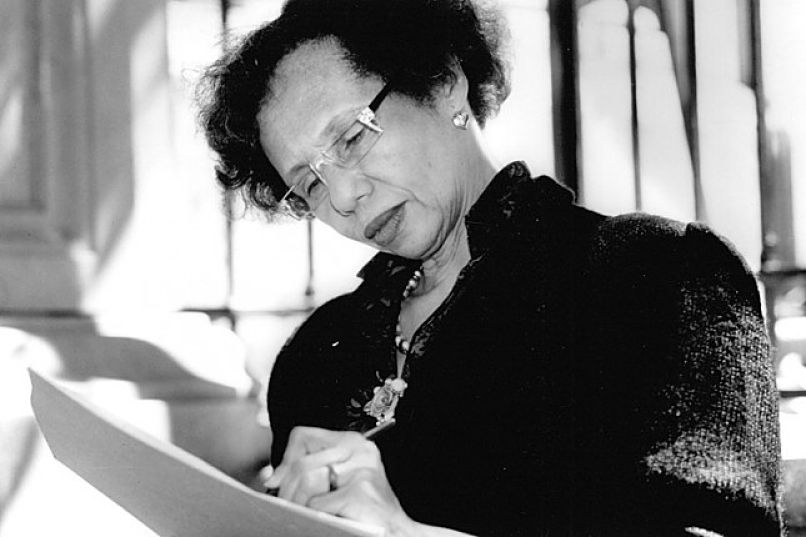Experiencing, Personally Witnessing
Adrienne Kennedy. Those two words mean so much. First of all they mean an artist. A playwright. A black playwright. Someone who looks like me. A black female playwright. Someone who looks like the person who gave birth to me.
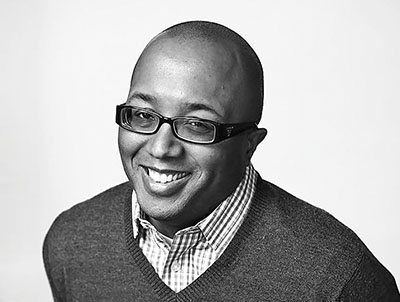
That is so profound because as a young artist I was presented with so few black voices during my education. I had to seek them out for myself. Whenever I encounter an Adrienne Kennedy play, it explodes my brain and challenges me in ways that I dream of my own work doing to others. For me, her work is not necessarily about understanding, but rather it’s about experiencing. Personally witnessing. Listening emphatically. Standing flat-footed in a world unlike any I could have imagined and allowing her language to drown me in wonder and awe. Knocking my head up against images that cannot be shaken loose. Demanding myself to let go of an unhealthy addiction to the linear narrative. There are not many artists who when mentioned an almost silent reverence is heard. Her voice changes the molecules of the theatre space like none other and has been a beacon to me as I continue to find my own.
Robert O’Hara, playwright and director
Landscape of the Mind
In 2018 I asked Adrienne, with whom I studied playwriting as an undergraduate, if I could read her work as part of a Boston festival I curated in which I combined music, film, and writing created by women. Adrienne graciously agreed and sent me some of her recent work, including He Brought Her Heart Back in a Box, as ideas.
After reading the works she sent me, I asked her: Was it acceptable for a white woman to perform words of a character written as African American? (I felt conscious of the history of whitewashing and the necessity of representation of many different types of experience, even in a non-theatrical production of her work.)
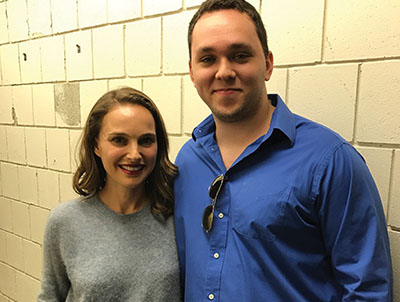
at Boston Calling 2018.
Adrienne’s response affected me: “If I had not been allowed to read Jane Eyre aloud in class because I did not look like her, I may never have become a writer,” she said.
Adrienne’s work is steeped in specificity of cultural experience, but is primarily the psychological experience of a person. Her language transports the reader into the vibrating consciousness of a woman whose heart we can feel beating and whose mind we feel branching poetically from her core.
He Brought Her Heart Back in a Box is a landscape of the mind—unconventionally aligning people, places, things, and time periods in a dreamlike fashion, never taking a straight path from one event to another if a more beautiful route is available. It’s a wandering, time-traveling, ecstatic celebration of internal life and the poetics of the mind. And it is a testament to the universal empathy that arises from the seeds of extreme specificity of experience.
Natalie Portman, actor, director, and producer
If You Do Not Lie
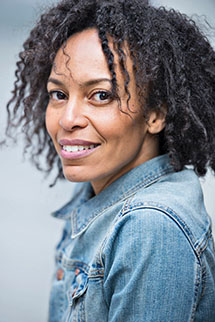
if you do not lie,
this is a difficult way to live your artist’s life
and the perfect way to live your artistry.
when you don’t lie,
when you adhere to your deepest fantasies,
memories, nightmares, obsessions,
loves and hatreds
like a molecule holds its atoms,
when these obsessions are your very best friends,
when you are set upon by them,
possessed by them,
when they must out,
you don’t sleep.
and when you are awake,
you are not in service to anything but them.
if you do not lie,
if you share your dreams’ illogic
as the purest truth
of transatlantic blackness under siege,
of the simultaneity of history and future—
each image fractal and iterative—
if you write it all down,
write it all down for us,
you are Adrienne Kennedy.
I first met Adrienne when she taught me playwriting at Harvard.
she told me that my play about family in Birmingham was a gold mine.
and of course that is what her family has been to her,
a mythic terrain with figures equal to the characters
and celebrities in the literature and films she loves.
the slicing honesty in the plays we encounter today
not only by black writers
is a space opened by her work.
she cannot find sleep and when we see what she sees,
she robs us of ours.
Eisa Davis, actor and writer. Davis, a former student and
longtime mentee of Kennedy, got her Equity card playing June in the world premiere of June and Jean in Concert and gathered the original team of Funnyhouse of a Negro for a 40th-anniversary celebration at New Dramatists. Davis recently played Suzanne in a reading of Sleep Deprivation Chamber at Shakespeare Theatre Company in Washington, D.C.
Cartographer and Second Mother
Adrienne was the best professor I had at Harvard. She was a shaman conjuring characters who rose, alive, from inside us, her students. One day she invited me out to Café Pamplona, where she urged me to order what she was having: an iced mocha latte, in a tall frosted glass. Delicious. She gazed at me, over the whipped cream, and said, with conspiratorial delight, “Tell me about your play…who’s your protagonist?” I was blocked, writing my first real play for her class. I had no idea who my protagonist was. Until that moment. Suddenly I found myself saying things to her about a librarian named Lillian. She seemed fascinated by this new person. In class, she told us to write rather than speak about writing, as she bent her head to her own work—“How about some pages on…a childhood accident your character experienced?” Her one rule for us: Write, Now.
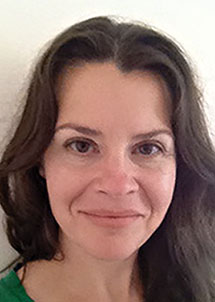
Post-college, as a young playwright and performer in New York, I lived four blocks away from Adrienne, scraping by on my small graduate school fellowship. Luckily Adrienne ran a kind of fellowship for me and other former students. She’d phone at 5:30 in the morning—she had new pages, could she pay me to type them? She needed some errands done, but she must insist on paying me. Working for free wasn’t allowed, though I tried. I’d climb the winding stairs leading to her wood-paneled, book-filled retreat, to deliver amaryllis bulbs, fresh eucalyptus, the Times, stamps, her xeroxed typewritten pages, and two iced lattes—“Get one for yourself.” We’d talk, writer to writer, about childhood, family, the future, whatever I was working on. And always, her advice, intrepid—“Every day, write to someone about your work.” During those talks, while I was in my 20s, Adrienne often reminisced about raising her two boys. By the time I finally became a mother, she’d moved to Virginia. Struggling to sustain my writing during motherhood, I realized that Adrienne, my second mother, knew to provide me, all those years ago, with a map. I follow her map: rise early (she rose at three to write until her boys woke at seven); take the kids to the park so you can daydream; and if all else fails, write just one page a day, every day, no matter what. Until I had my son, I never quite believed her, but now I know that a page a day does add up—I wrote a book that way, while my son attended kindergarten. I owe so much to Adrienne.
Jennifer Gibbs, playwright, writer, and performer
A Poet of the Theatre
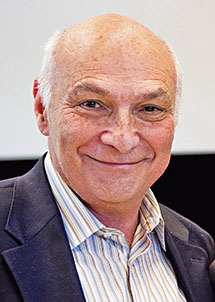
Working with Adrienne has been one of the loveliest experiences in my theatre career. A true poet of the theatre, her incantatory mixture of myth, personal experiences, and delight in language has created an individual and indelible body of work. Adrienne is an American treasure.
Michael Kahn, former artistic director,
Shakespeare Theatre Company. Kahn has had a long relationship with Adrienne Kennedy, directing numerous productions of her plays, including the premiere of Funnyhouse of a Negro in 1964
The Lighthouse
I can recall being viscerally impacted by my first reading of Adrienne Kennedy’s Funnyhouse of a Negro. The last line of the play was both a keystone that held my understanding of the piece together and a sledgehammer challenging everything I’d read thus far. It posed enticing questions to me as an artist: How might I similarly challenge readers/audiences to deeply reconsider an entire work by the time they’ve reached its end?
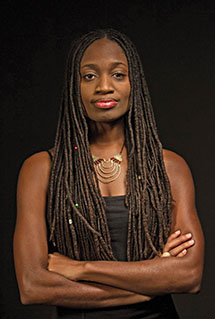
Similarly, the strangeness of Kennedy’s characters was and still is a revelation. I had not encountered dramatic texts featuring black women who were represented so far beyond the boundaries of realism before reading her work. She gave me permission to allow whatever entities (historical, fantastical, or nonhuman) that came knocking to enter. The way she embraces simultaneity of character and place, as well as her ability to split and conjoin characters’ psyches, gifted me a world of possibilities I was yearning for as a young writer.
Adrienne Kennedy’s work is a lighthouse, a liberating beacon reminding me that no structure, no mode of expression or subject matter is off limits to me as a dramatist.
Aleshea Harris, playwright and performing artist
Just the Right Push
Why do some teachers leave an impact?
Harvard professor Adrienne Kennedy made an impact on my life because she valued the work I needed to produce rather than the intrinsic charm from which the work derived. Professor Kennedy’s principled classroom leadership taught me a humble lesson necessary at the time to complete my studies. Her intervention in my life at the right time, when I was receptive to changing, unearthed a discipline that serves me today as a writer, and will forever impact those who come to my work.
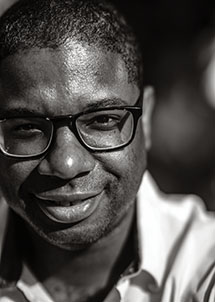
I decided to take Professor Kennedy’s class because I had read A Movie Star Has to Star in Black and White in Professor Shannon Jackson’s class as a junior. The first time I ever had to meet with my Currier House Tutor over disciplinary problems was as a senior due to a letter from Professor Kennedy. She warned me that if I did not complete the daily exercise assignments by an impending deadline I would fail her class. This action set me on a course to cut out the procrastination. I was shrugging off the exercises and planning on writing a great final play. Professor Kennedy made me see the error in that reasoning. I could not overlook the daily required work to write the next great play without doing the exercises that would prepare me to write the next great play.
After I completed the exercises, I wrote a one-act play for which Professor Kennedy gave me an excellent grade, and I completed the class in high standing.
I believe the answer to my initial question as to why Professor Kennedy had an impact on my life is because in her heart she knew what it took to succeed, to thrive, and to make an impact as a writer. She wanted me to be the best I could be. With her letter to my tutor she warned me that she wouldn’t take less than me completing all the work. She forced me to make a decision: Did I want to fail or succeed? I thank Professor Kennedy for having it no other way. May her brilliant work continue to shine, find audiences, and impact lives, as may mine and all of her former students.
Steven J. Turner, writer and director
Refusing to Go There
If I had to use one word to describe the experience of blacks in America, it would be confinement. Physical, psychological, and cultural. Like the fugitive slave, from time to time, black artists can escape the restrictions placed upon them. When they do so, not only will there be an attempt to corral them, often by surrogates who resemble them, but by critics who will penalize them for breaking barriers. Those who are accepted are ones who reflect the prevailing political and cultural trends demanded by those in power. The attitude toward blacks that came with the rise of Ronald Reagan was that whichever problems affected blacks were self-inflicted. Blacks lacked “self-responsibility,” reasoning that was accepted even by powerful sections of the black elite. There came a literature of the backlash: The Bonfire of the Vanities, Six Degrees of Separation, Spinning into Butter, Stonewall Jackson’s House, The Color Purple, and Precious. White power, which penalizes blacks in a variety of ways, was placed in the background and deemed benign. Plays that featured fratricide, or which blamed blacks, especially black men, for whichever problems existed among American blacks were rewarded.
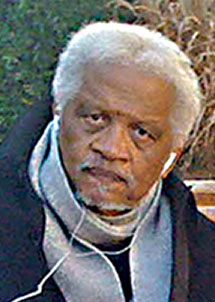
Adrienne Kennedy refused to go there. While many of her inferiors received top prizes for blame-the-victim literature and theatre, Ms. Kennedy came up with Sleep Deprivation Chamber (with son Adam Kennedy) in 1996.
In my opinion, this play is one of the most powerful indictments of the racist criminal-justice system yet penned, which, with the cooperation of millions of whites, and in Ms. Kennedy’s play, some blacks, prosecutors, and judges grant the police full power to use extreme methods in dealings with blacks. Sleep Deprivation Chamber showed that contrary to suburban and media myths, police brutality doesn’t just happen to members of “the underclass,” like Michael Brown, which the media and police unions can justify; but to a black family with pedigree, which plays by the rules, which has met the tests of a civilized society and then some.
Black writers like Adrienne Kennedy are not there to coddle, or to comfort. They challenge us. They contest official lies. For them, truth is more important than a dubious fame, and they are willing to offend white nationalists whether they be present in politics or culture.
Ishmael Reed, writer, is the author of the play The Haunting of Lin-Manuel Miranda
An Urgent Voice and Vision
While at Harvard in the late 1980s, I first encountered the plays of Adrienne Kennedy in my American Drama Since 1945 course. I was immediately drawn to Funnyhouse of a Negro for its surreal, oneiric imagery and painful exploration of race and identity. I was haunted by the play’s vivid depiction of a fractured consciousness and the terrible toll of endemic racism. I dreamed that some day I could stage Kennedy’s vision.
When it was announced that Adrienne would be coming to campus to teach playwriting, I was overwhelmed with anticipation. Having heard a rumor that she would only accept the first 12 students to walk through the door, I showed up two hours early on the first day. I was second in line.
Studying with Adrienne was one of the most profound and formative experiences of my creative life. Adrienne inspires by example, and under her tutelage, we were encouraged to mine our dreams—the memories, fears, and desires of our subconscious—for material to generate deeply personal dramas. Adrienne’s course opened up a world of possibility for me, and with her encouragement, I dared to broach a new frontier of artistic expression that married language, imagery, action, and emotion in exhilaratingly unexpected ways.

Adrienne and I forged an unusual bond. I was in profound awe of her—puzzlingly quiet and modest—and she was equally perplexed by me: a restless misfit with multiple piercings and a bizarrely shaved head. Still, we were drawn to one another. When I directed plays on campus, Adrienne made an effort to attend. Indeed, when in my senior year I ultimately directed The Anniversary, the play I had written in her course, she returned to campus from New York to see the production. Her faith in me, support of my work, and patience during my own difficult creative maturation left a lifelong mark on me.
I am proud to say that I have had the opportunity to stage two of Adrienne’s early works—Funnyhouse, and its separated-at-birth twin, The Owl Answers—in significant productions. And I enthusiastically teach her work to a new generation of artists in my own courses at both MIT and the Boston Conservatory at Berklee. Her voice and vision seem as timely and relevant—and urgent—as ever in the difficult, ongoing conversation about race and representation in 21st-century America.
David R. Gammons, theatre artist and educator
Adrienne Kennedy and the Avant-Garde
Adrienne Kennedy’s distinctive characters are constructed with daring and precision; and each is made unique and indivisible. The split personas perform a visual and lingual shape-shift on the contemporary stage. Not only do we feel, see, and hear the internal and external realities within the plays that culminate as an ultimate moment of rupture, where both the physical spaces and psychological contours shift, break down, evolve, transfigure, but we are captured by a suspended moment of theatre that does not attempt pseudo-realism. She transports us into a world of her own making, and we come to know that one will not see the likes of such on the next street corner. Yet, there’s something brilliantly and devilishly real at the emotional nexus of each work.
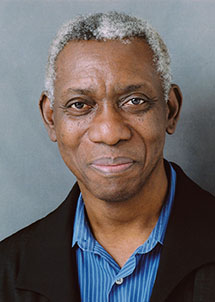
Kennedy juxtaposes the absurd against the painfully real, and nowhere is this psychological multiplicity more exacted than in The Owl Answers where magical realism is delivered through voice, texture, and plot-ritual. The playwright says, “The characters change slowly back and forth into and out of themselves, leaving some garment from their previous selves upon them always to remind us of the nature of She who is Clara Passmore who is the Virgin Mary who is the Bastard who is the Owl’s world.” Here virgin and bastard are a troubling contradiction, and the surreal gestures become a method of revelation.
One cannot escape the terror and beauty worked through Kennedy’s language—and perhaps it is, after all, her language that finally performs a revelation. Poetic timbre resides in all her dramas, from Funnyhouse of a Negro to He Brought Her Heart Back in a Box. When one considers this playwright’s oeuvre, one finds in her shifting lens a vision that propels us through, but beyond W.E.B. Du Bois’s double consciousness. In fact, perhaps it is essential to understand that the absurd serves as a catalyst for excavating the complexities of race and class, where black and white commingle or conflict in the psyche—and where royalty lives alongside brutal everyday reality within the imagination. Under Adrienne Kennedy’s guiding force, classical conceits pepper the avant-garde. The narrative leaps are imagistic and lyrical, risk-taking, and bending of the natural world, seeming to materialize before our eyes, but owing all to continuity of a superb imagination. Her poetry is alive with spiritual and profaned wit. Her matter-of-fact stage notes accentuate a system of beliefs that guides us from a play’s first to last spell-binding gesture.
Yusef Komunyakaa, poet and educator
A Nod and a ‘Yes’
My last year of college, I got to take a playwriting seminar with Adrienne Kennedy. A petite, soft-spoken woman, she made it clear without quite saying so that our work together was of sovereign importance, so crucial that she could waste zero minutes on niceties, bureaucracy, or our anxious Harvard strivings for success. Our first assignment: Write about a landscape. How? How long? What format? She literally waved off our questions, shaking her hand and closing her eyes: Just write some pages. I had seen this exercise on the syllabus and was dying to write about England; now, having no instructions, I poured out my memories, conjuring the enchantment of those places that held me in their grip. The next class, she made us read out what we had written. No preambles permitted. Her critique was limited to nodding her head and murmuring, “Yes” or “Very powerful” from time to time. She then announced we would begin writing our plays, right now at the table with our pens. What plays? How? Again, she waved us away, picked up her own pen, drew her own notebook close to her, and told us to begin.
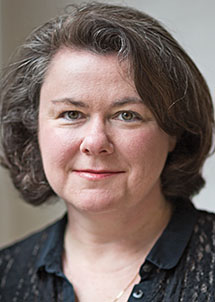
The class continued this way all semester. For the first time, I began to write wildly, without regard to how it would appear, or how appropriate or correct it was. I realized that I had been carrying around an internal critic—I saw him as a bearded creative-writing teacher—but after only a short time with this strange, bird-like yet forceful woman, my lifelong urge to please was simply left to wither; our work was not about pleasing, there was no dramatic form we were meant to conform to, and because there was no pleasing or conforming, there was also no rebelling. There was only the landscape, the dream, the traumatic experience, the character, and the play that took shape week by week. Those months with her changed my writing more than any other single influence, freeing it from the good-girl prison of my youth and saying to the wild, living truth, “Yes. Very powerful. Yes.”
H.S. Cross, novelist and educator
This essay originally appeared in Farrar, Straus & Giroux’s “Work in Progress” column in March 2019. Reprinted with permission.
The Ideal Mentor
I’ll leave it to critics to laud Adrienne Kennedy for her bold, moving, visionary work.
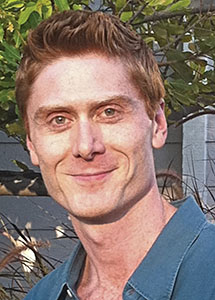
My recollection is a personal one. I was a student of Adrienne’s in a creative-writing seminar at Harvard in the late 1990s. Her generosity of spirit, her encouragement tempered with honesty, and her sly sense of humor made her the ideal mentor. Without her belief in me, I’m not sure I would have become a writer. So I curse her for that sometimes, but always with great affection and gratitude.
Samuel Baum, playwright and television writer

